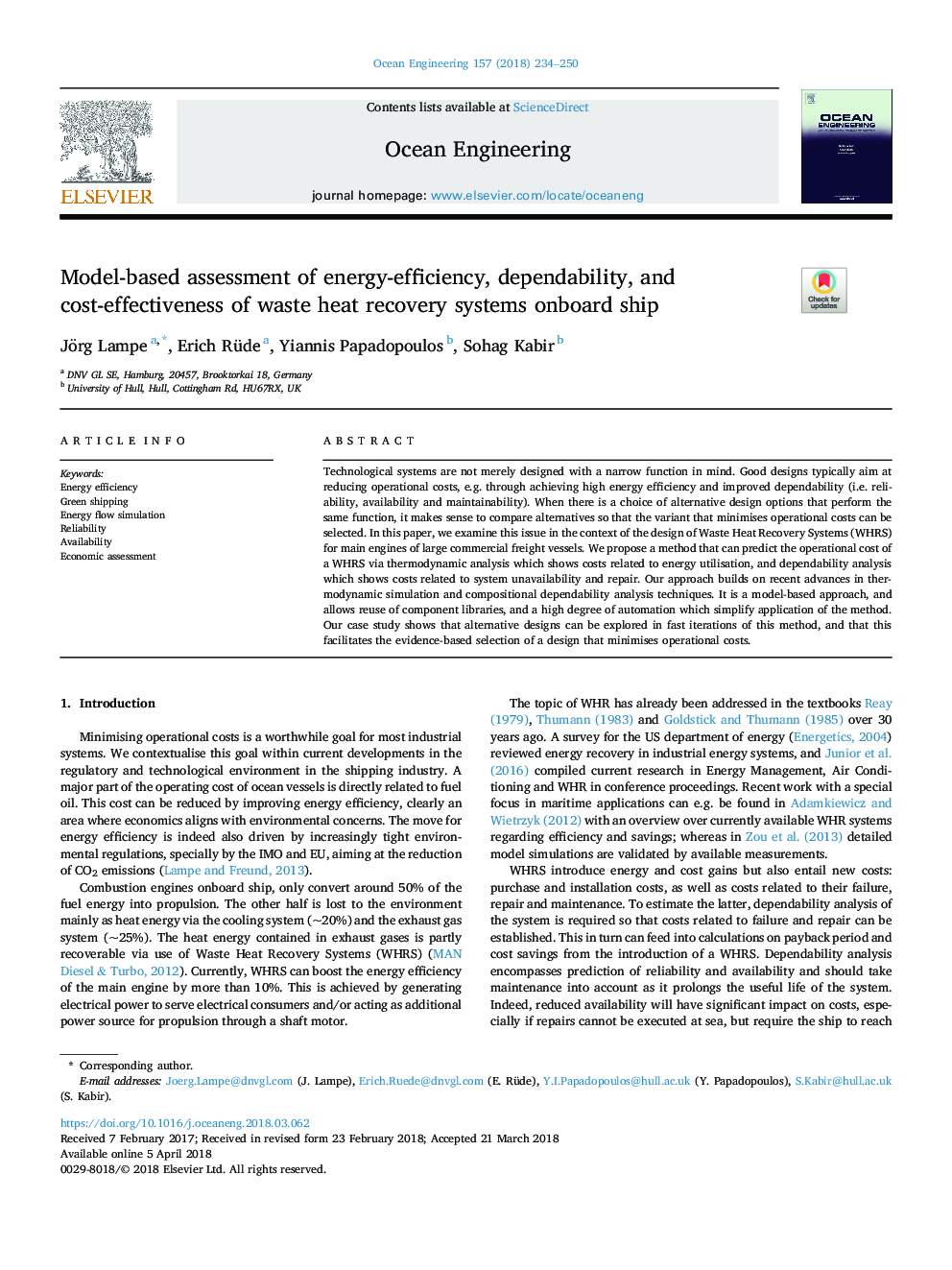| Article ID | Journal | Published Year | Pages | File Type |
|---|---|---|---|---|
| 8062546 | Ocean Engineering | 2018 | 17 Pages |
Abstract
Technological systems are not merely designed with a narrow function in mind. Good designs typically aim at reducing operational costs, e.g. through achieving high energy efficiency and improved dependability (i.e. reliability, availability and maintainability). When there is a choice of alternative design options that perform the same function, it makes sense to compare alternatives so that the variant that minimises operational costs can be selected. In this paper, we examine this issue in the context of the design of Waste Heat Recovery Systems (WHRS) for main engines of large commercial freight vessels. We propose a method that can predict the operational cost of a WHRS via thermodynamic analysis which shows costs related to energy utilisation, and dependability analysis which shows costs related to system unavailability and repair. Our approach builds on recent advances in thermodynamic simulation and compositional dependability analysis techniques. It is a model-based approach, and allows reuse of component libraries, and a high degree of automation which simplify application of the method. Our case study shows that alternative designs can be explored in fast iterations of this method, and that this facilitates the evidence-based selection of a design that minimises operational costs.
Related Topics
Physical Sciences and Engineering
Engineering
Ocean Engineering
Authors
Jörg Lampe, Erich Rüde, Yiannis Papadopoulos, Sohag Kabir,
